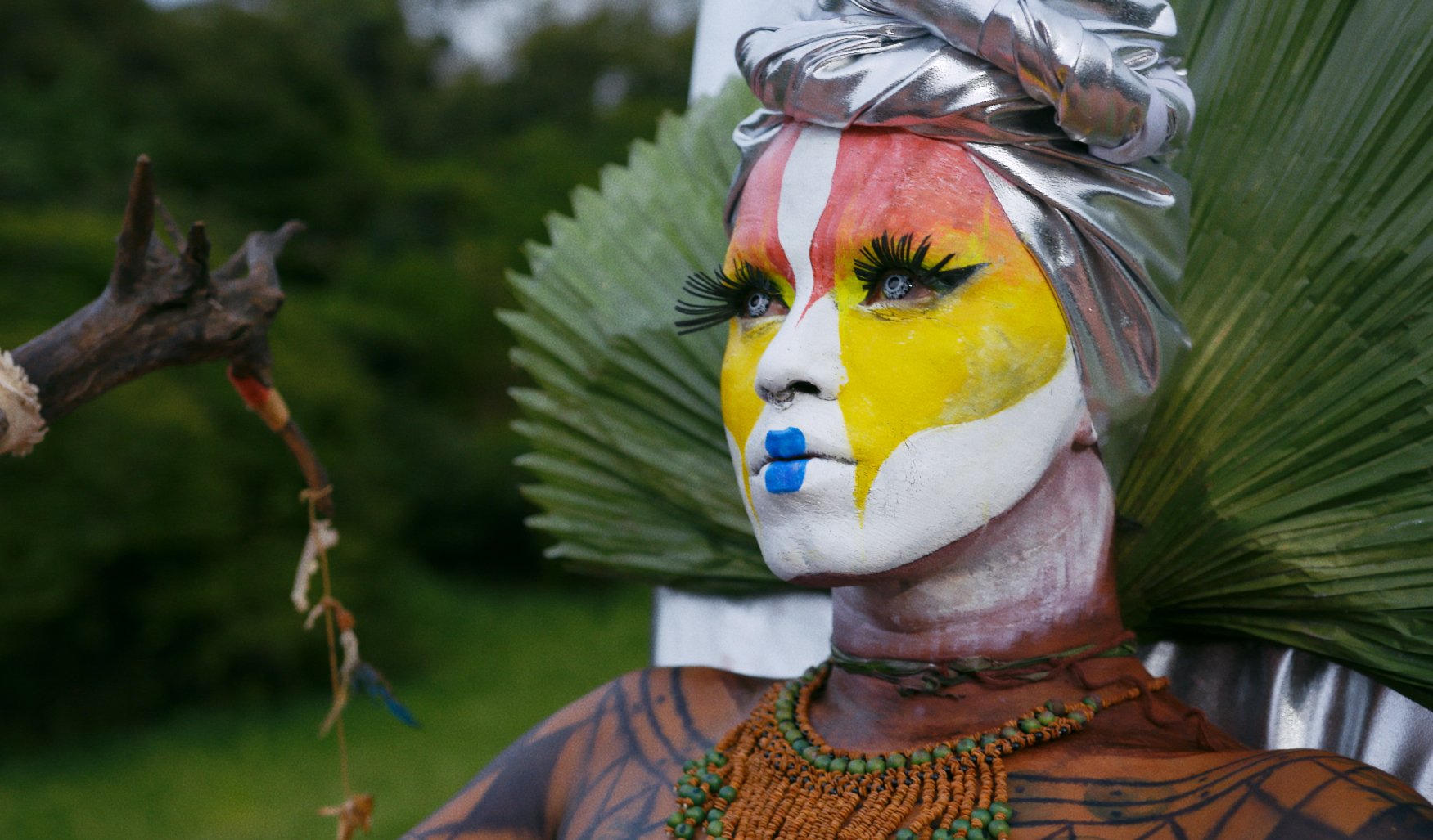
- Industry
“Uýra: The Rising Forest” Confronts Environmental Destruction, Structural Racism, and Transphobia in Brazil
“The change we need is so profound that it’s often described as impossible,” says the transgender, non-binary subject of the new documentary Uýra: The Rising Forest. “But the impossible is coming. And the unimaginable is due.”
That unshakeable spirit of optimism and pride anchors this fascinating nonfiction offering, a Brazilian-American co-production that recently made its world premiere at the 46th annual Frameline International Film Festival.
Born in Manaus, Emerson Pontes (pronouns: them/they) is a biologist and art educator of indigenous origin, possessing a master’s degree in ecology. Uýra Sodoma is Emerson’s performative alter-ego, a hybrid persona who present themselves as “a tree that walks.” Birthed during the 2016 impeachment and removal of Brazilian President Dilma Rousseff, Uýra was conceived of as a living expansion of academic research, a way to meld environmental education with increased acceptance of LGBTQ+ and indigenous rights in the Manaus region, located in the heart of the Amazon Forest. “I don’t see my work without an agenda of war,” says Uýra. “It’s political, it’s a manifesto, it’s a denouncement.”
Some of the film’s footage — for example, a scene in which Uýra engages with a small group of children in a dialogue about the spirit of the forest and Curupira, a mythological creature of Brazilian folklore — presents slightly otherwise. But while its political leanings don’t particularly manifest in the form of any specifics regarding policy or elected leaders (apart from Jair Bolsonaro, Brazil’s president, being referenced once as “this ridiculous person in power”), the movie’s projection of forward-leaning, full-throated determination for systemic change comes into focus in its own way. This is most embodied in a provocative performance piece which gives the film the latter half of its title, stemming from a visit to the ruins of a Catholic Church built on top of an indigenous cemetery and where the forest has reclaimed a paved-over history.
Eschewing formal production techniques as well as any dominant-culture framing, Brazilian filmmaker Juliana Curi translates the energy of the Amazon into a work of nonfiction that serves as a conduit for the feelings of indigenous people. She amplifies their voice in a tale told in their own words.
This approach yields unique results. The best moments connect visually, almost as living paintings. Decked out in colored contact lenses and stunning handcrafted costumes, Uýra engages in a variety of performances. Sometimes they involve dance, poetry, or direct monologues focused on the problem of water pollution. In some instances, Uýra’s work takes place at cultural centers or other spaces of resistance. They might also happen in the middle of a polluted creek bed. Sometimes Uýra performs alone, other times they are joined by colleagues from a Manaus-based artistic collective called Tupiniqueens.
In certain instances, Uýra: The Rising Forest might suffer a bit from its steadfast refusal to widen its scope within its scant, 71-minute running time. Juliana Curi, deeply influenced by the social cinema school, clearly views the film as less “hers” than a fundamental collaboration. Still, it feels like there’s a needle to be threaded which doesn’t disrespect the story of Uýra and other indigenous parties (who, to be fair, may have other views or opinions) but also provides some additional context for their struggles.
Instead, Uýra: The Rising Forest relies upon the audience’s inherent goodwill to its original subject matter to hold its attention. It’s that mere presentation that most recommends this captivating and one-of-a-kind work.

